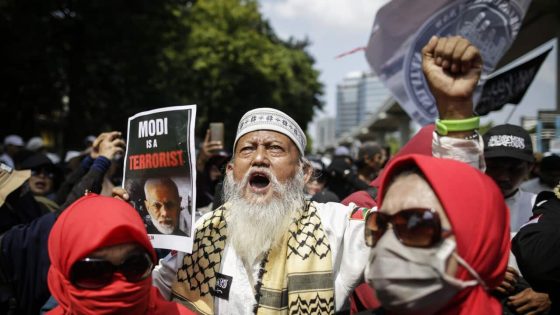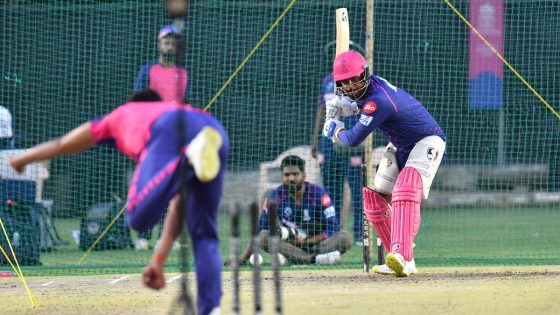Key Points
- The law grants a pathway to Indian citizenship to refugees but excludes those adhering to the Muslim faith.
- It was not implemented after its 2019 enactment as protests and sectarian violence broke out.
- At least 40 people were killed in protests between supporters and opponents of the amendment.
After the law was passed, protests and sectarian violence broke out in New Delhi and elsewhere, with scores killed and hundreds injured during days of clashes.
Indian paramilitary soldiers stand in a vandalised area in north-eastern Delhi, after clashes broke out in New Delhi, India, 28 February 2020. Source: EPA / STR
Rights groups and Muslim groups say the law, combined with a proposed national register of citizens, could discriminate against India’s 200 million Muslims – the world’s third-largest Muslim population.
“It was an integral part of BJP’s 2019 manifesto. This will pave [the] way for the persecuted to find citizenship in India,” he said, referring to the ruling Bharatiya Janata Party’s (BJP) 2019 election manifesto.

Indian women and children display slogans written with henna on their palms during a protest against a new citizenship law in Bangalore, India, 1 March 2020. Source: AP / Aijaz Rahi
A Home (interior) Ministry statement said the law would remove legal barriers to citizenship for refugees, giving a “dignified life” to those who have suffered for decades.
“This act is only for those who have suffered persecution for years and have no other shelter in the world except India,” it said.
Law ‘needed to help minorities’
Modi swept to power in 2014 and has consolidated his hold since with a focus on growth, welfare economics, boosting infrastructure and aggressive Hindu nationalism.
“After seeking nine extensions for the notification of the rules, the timing right before the elections is evidently designed to polarise the elections, especially in West Bengal and Assam,” Congress spokesperson Jairam Ramesh said on X.
Source Agencies


